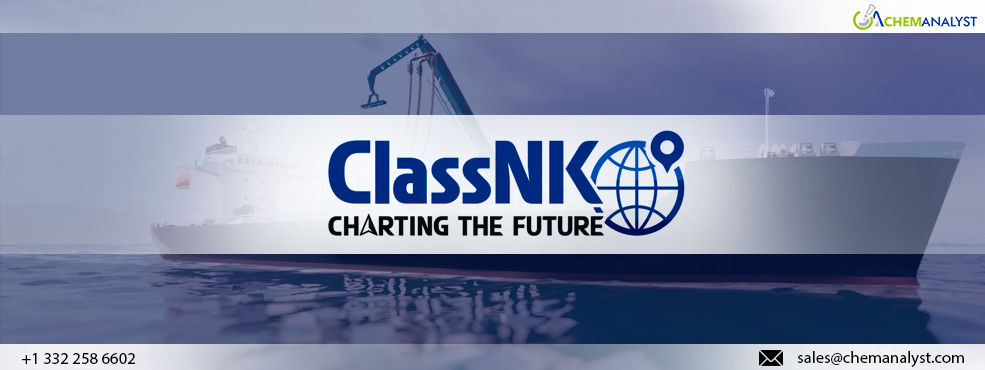Welcome To ChemAnalyst

ClassNK has granted an Approval in Principle (AiP) for a design concept of the ammonia fuel bunkering boom—ship-to-ship fuel transfer equipment installed on bunkering vessels—developed jointly by Nippon Yusen Kabushiki Kaisha (NYK Line) and TB Global Technologies Ltd. This AiP certification marks the world’s first for a bunkering boom designed for ammonia fuel, as claimed by TB Global, the entity responsible for securing the AiP, as of July 31, 2024.
As ammonia fuel is anticipated to play a crucial role in shipping's decarbonization efforts, bunkering vessels and associated equipment that supply this fuel will be vital to the supply chain. However, given its novelty, ensuring the safety of such equipment using existing regulations can be challenging.
To address emerging technologies, ClassNK has introduced the "Guidelines for Technology Qualification," which outline a certification process to ensure that these new technologies meet safety standards comparable to those established under current rules and regulations. These guidelines offer a risk-based approach to evaluating safety, facilitating the integration of new technologies into existing frameworks.
ClassNK reviewed the basic design drawings of the bunkering boom according to part N of its "Rules and Guidance for the Survey and Construction of Steel Ships" for vessels transporting liquefied gases in bulk. They also assessed the necessary documents as outlined in the "Guidelines for Technology Qualification." After confirming that all requirements were met, ClassNK issued the Approval in Principle (AiP).
At the early stages of design or before finalizing the target ship for implementation, the design is evaluated against existing regulations, including international conventions and ship classification rules. An Approval in Principle (AiP) is issued to confirm that the design meets these requirements. This process helps avoid regulatory rework later, reduces the time needed for class registration, and serves as a technical foundation for external validation of the design status.
Nippon Kaiji Kyokai traces its origins to the establishment of the Teikoku Kaiji Kyokai (the Imperial Marine Association) in Tokyo in November 1899. This organization was founded to advance the regulation and development of Japan's shipping and shipbuilding industries. In its early years, the Society engaged in a broad range of shipping-related activities, contrasting with the focused technical role that ClassNK fulfills today. ClassNK provides a comprehensive suite of services covering all aspects of ship classification. This includes approving vessel and machinery plans, conducting surveys and registrations for ships and their installations, approving materials, equipment, and outfitting gear, and assessing and registering ship safety management and security systems.
We use cookies to deliver the best possible experience on our website. To learn more, visit our Privacy Policy. By continuing to use this site or by closing this box, you consent to our use of cookies. More info.
